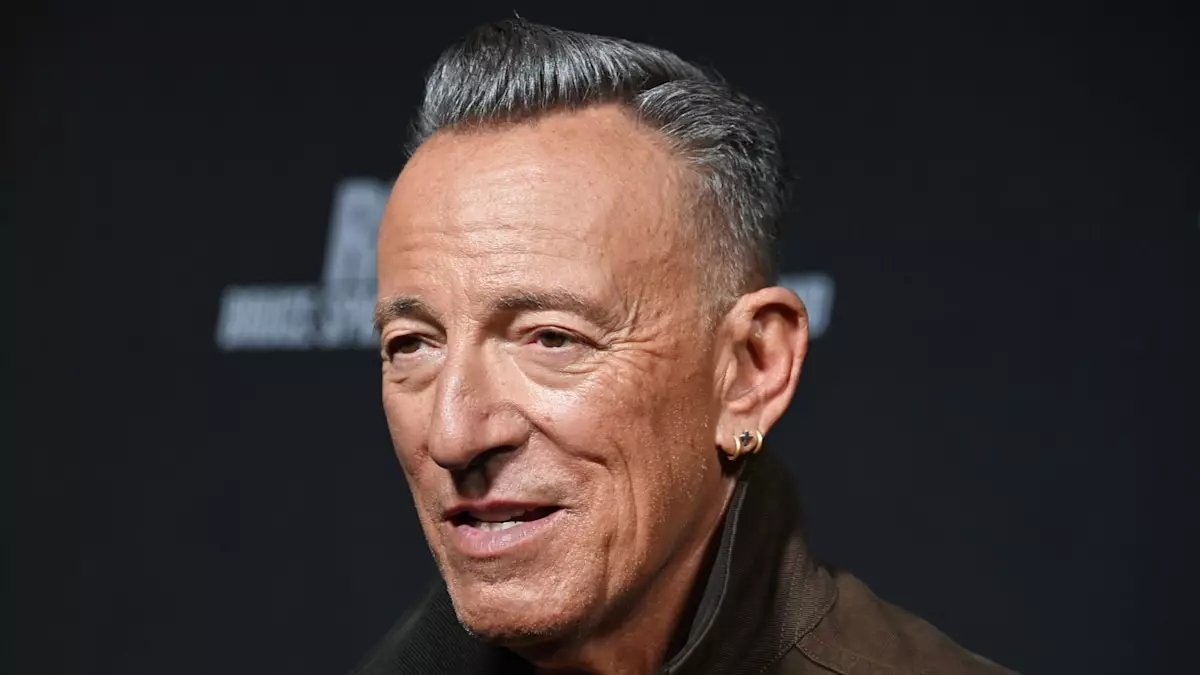In recent days, the music industry has been rocked by the untimely passing of prominent artists, highlighting the severe psychological and emotional toll fame can exert. Notable singer Bruce Springsteen has brought attention to these issues, especially after the tragic fall of 31-year-old Liam Payne in Buenos Aires. This devastating incident serves as a crucial reminder of the dark realities faced by young musicians navigating their way through an industry that often thrives on chaos rather than well-being.
The Weight of Celebrity Expectations
Bruce Springsteen’s poignant remarks about the “enormous pressures” placed upon young talent resonate deeply in today’s cultural landscape. The journey from anonymity to stardom is tantalizingly quick yet fraught with peril. Aspiring musicians often enter the industry with dreams, only to find themselves ensnared in a web of expectations and demands. Springsteen articulated a critical point: “Young people don’t have the inner facility or the inner self yet to be able to protect themselves from a lot of the things that come with success and fame.” This lack of maturity, coupled with the relentless gaze of the public eye, can lead to self-destructive behaviors.
The tragic case of Liam Payne is emblematic of a broader issue; his fall, both literal and metaphorical, speaks to the precarious balance young artists must strike. Rising to fame too soon can create a dissonant reality where the need for personal growth and self-awareness is overshadowed by the pressures of fame. The narrative surrounding Payne’s passing is not just a tale of loss; it shines a spotlight on the systemic issues that plague the entertainment industry, issues that Springsteen and other veterans have witnessed firsthand.
Springsteen’s recognition of the “toxic” culture within the music industry raises an important discourse on mental health and addiction. He reflects on how “difficult and often pain-inducing” elements permeate this field, mentioning the prominence of drugs and alcohol as coping mechanisms—tools of survival in a high-pressure environment. This cycle of substance abuse not only compromises the artist’s health but also feeds into the industry’s aesthetic of tragedy, where dying young is glorified and romanticized.
Springsteen’s experience with personal demons underscores an often-overlooked aspect of artistry: the internal battles that may not manifest as overt addiction but are equally debilitating. The artist’s journey is riddled with self-doubt, fears of inadequacy, and the constant struggle against the weight of expectations, leading many to question their worth and purpose. Springsteen aptly described this as “a tremendous push toward self-obliteration,” highlighting the intrinsic conflicts faced by those on stage—a powerful reminder that the spotlight can cast long, dark shadows.
In addressing the passing of young artists like Liam Payne, it’s vital to examine the role of the industry itself. Bruce’s comments reflect a sincere hope that, should tragedy strike, the cause is natural rather than a reflection of systemic failures that plague many artists. Sharon Osbourne’s tribute further emphasizes the industry’s negligence: “Where was this industry when you needed them?” This question reveals a glaring absence of support systems that should be in place to protect those who, at a young age, step into one of the most challenging professions imaginable.
As music becomes increasingly accessible and artists are thrust into the limelight overnight, the responsibility of the industry to provide mental health resources, mentorship, and a safety net for its talent has never been more critical. The trajectory of artists’ lives rests not only on their talent but also on the support they receive.
The recent tragedies must serve as calls to action for both industry leaders and fans alike. Artists like Bruce Springsteen remind us that fame can come at a high cost, yet addressing these challenges is something that the entire community must embrace. The music industry needs to shift from a profit-driven model to one that prioritizes the health and well-being of its artists.
To honor the memories of those who have suffered, we must advocate for holistic approaches to mental health, ensuring that the next generation of musicians is equipped to navigate their journeys with resilience and support. In doing so, we can hope that the future of music becomes a haven for creativity and healing rather than a battleground fraught with peril.


Leave a Reply